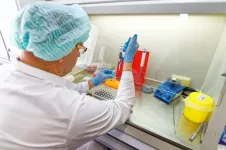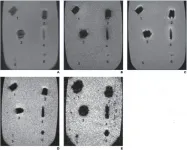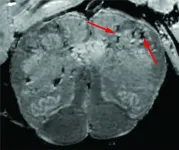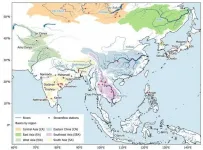(Press-News.org) BIRMINGHAM, Ala. - COVID-19, which has killed 1.7 million people worldwide, does not follow a uniform path.
Many infected patients remain asymptomatic or have mild symptoms. Others, especially those with comorbidities, can develop severe clinical disease with atypical pneumonia and multiple system organ failure.
Since the first cases were reported in December 2019, the SARS-CoV-2 virus that causes COVID-19 has surged into a pandemic, with cases and deaths still mounting. Ongoing observational clinical research has become a priority to better understand how this previously unknown virus acts, and findings from this research can better inform treatment and vaccine design.
University of Alabama at Birmingham researchers, led by first-author Jacob "Jake" Files and co-senior authors Nathan Erdmann, M.D., Ph.D., and Paul Goepfert, M.D., have now reported their observational study, "Sustained cellular immune dysregulation in individuals recovering from SARS-CoV-2 infection," published in the Journal of Clinical Investigation.
In a commentary on the UAB study, published in the same issue, Phillip Mudd, M.D., Ph.D., and Kenneth Remy, M.D., both of Washington University, wrote, "The importance of these studies to provide context for the interpretation of immune responses generated by participants in COVID-19 vaccine trials, including how those responses change over time, cannot be over-emphasized. This information will be key in potential modifications to existing COVID-19 vaccines and treatments."
The UAB researchers obtained blood samples and clinical data from 46 hospitalized COVID-19 patients and 39 non-hospitalized individuals who had recovered from confirmed COVID-19 infection. Both groups were compared to healthy, COVID-19-negative controls. Importantly, most individuals in the hospitalized group had active SAR-CoV-2 viruses in their blood and were in the hospital at the time of sample collection. All individuals in the non-hospitalized group were convalescent at the time of sample collection.
From the blood samples, researchers were able to separate specific immune cell subsets and analyze cell surface markers. From this complex information, immunologists can analyze how each individual's immune system is responding during infection and during convalescence. Some of these results can reveal whether immune cells have become activated and exhausted by the infection. Exhausted immune cells may increase susceptibility to a secondary infection or hamper development of protective immunity to COVID-19.
In addition, the researchers were able to analyze changes over time, in two ways. The first was observing changes in surface markers over time, defined as days since the onset of symptoms for non-hospitalized samples. The second was directly comparing the frequencies of these markers between the first and second clinic visits for non-hospitalized patients who had blood samples collected at two sequential timepoints.
The most surprising finding involved non-hospitalized patients. While the UAB researchers saw upregulated activation markers in hospitalized patients, they also found several activation and exhaustion markers were expressed at higher frequencies in non-hospitalized convalescent samples.
Looking at these markers over time, it was apparent that immune dysregulation in the non-hospitalized individuals did not quickly resolve. Furthermore, the dysregulation of T cell activation and exhaustion markers in the non-hospitalized cohort was more pronounced in the elderly. "To our knowledge," the researchers reported, "this is the first description of sustained immune dysregulation due to COVID-19 in a large group of non-hospitalized convalescent patients."
For details of the comprehensive look at immune cells subsets during and after COVID-19 infection in hospitalized and non-hospitalized people, see the study, which includes an in-depth characterization of the activation and exhaustion phenotype of CD4+ T cells, CD8+ T cells and B cells.
The B and T cells from both patient cohorts had phenotypes consistent with activation and cellular exhaustion throughout the first two months of infection. And in the non-hospitalized individuals, the activation markers and cellular exhaustion increased over time. "These findings," Mudd and Remy said in their commentary, "illustrate the persistent nature of the adaptive immune system changes that have been noted in COVID-19 and suggest longer-term effects that may shape the maintenance of immunity to SARS-CoV-2."
A question now being explored, the UAB researchers say, is whether these observed immunologic changes are associated with symptoms experienced well beyond the acute infection, often described as "Long COVID."
Co-authors with Files, Erdmann and Goepfert in the Journal of Clinical Investigation report are Sushma Boppana, Mildred D. Perez, Sanghita Sarkar, Kelsey E. Lowman, Kai Qin, Sarah Sterrett, Eric Carlin, Anju Bansal, Steffanie Sabbaj, Olaf Kutsch and James Kobie, Division of Infectious Diseases, UAB Department of Medicine; and Dustin M. Long, Department of Biostatistics, UAB School of Public Health.
INFORMATION:
Files is a graduate student in the UAB M.D.-Ph.D., Medical Scientist Training Program. Erdmann and Goepfert are assistant professor and professor, respectively, in the UAB Division of Infectious Diseases.
At UAB, Goepfert holds the Edward W. Hook, III, M.D., Endowed Professorship in Infectious Diseases.
Carrageenans, biologically active polysaccharides isolated from red algae and widely used in the food industry as stabilizers, thickeners, or jelly agents have an express effect on the immune systems of mice, a study reports. The research was carried out by scientists from the School of Biomedicine of Far Eastern Federal University (FEFU), Far Eastern Branch of the Russian Academy of Sciences, and Vilnius University. A related article appears in the Journal of Biomedical Materials Research.
"The fact that carrageenan demonstrates immunosuppressive properties in a particular case does not make it generally dangerous or toxic though", says Aleksandra ...
Leesburg, VA, December 29, 2020--According to an article in ARRS' American Journal of Roentgenology (AJR), because patients with ballistic embedded fragments are frequently denied MRI (due to indeterminate bullet composition sans shell casings), radiography and CT can be used to identify nonferromagnetic projectiles that are safe for MRI.
"Commercially available handgun and shotgun ammunition representing projectiles commonly encountered in a clinical setting was fired into ballistic gelatin as a surrogate for human tissue," explained first author Arthur J. Fountain from the department of radiology and imaging sciences at Emory ...
While the world has its eyes on vaccines to stop the spread of coronavirus, therapeutics are still necessary to treat hospitalized patients. One of these treatments, remdesivir, is the first and only antiviral agent of its kind that the U.S. Food and Drug Administration (FDA) has approved so far for COVID-19.
Research at the University of Cincinnati, however, contends that this antiviral drug is being used too indiscriminately when treating patients hospitalized with the virus. The study is published in the journal Fundamental & Clinical Pharmacology.
The FDA approved remdesivir, marketed as Veklury, for emergency use authorization in May 2020 to treat COVID-19 and granted full approval ...
Mobile apps have revolutionised the way people meet in Switzerland and elsewhere in recent years. Unlike traditional dating sites, these apps do not feature detailed user profiles but are largely based on rating photos using a swipe review system. As dating apps escalated in popularity, so has criticism about them encouraging casual dating only, threatening the existence of long-term commitment, and possibly damaging the quality of intimacy. There is no scientific evidence, however, to validate these claims. A study by the University of Geneva (UNIGE), Switzerland, provides a wealth of information about couples who met through dating apps, drawing on data from a 2018 Swiss survey. The results, ...
Very low birthweight infants often need blood transfusions to survive. A National Institutes of Health-funded study suggests that providing a higher threshold of red cells within accepted limits offers no advantage in survival or reduction in neurological impairment over a lower threshold. The research was conducted by Haresh Kirpalani, B.M., of the University of Pennsylvania, Philadelphia, and colleagues and was funded by the NIH's Eunice Kennedy Shriver National Institute of Child Health and Human Development (NICHD), National Heart, Lung, and Blood Institute, and National Center for Advancing Translational Sciences. The study appears in The ...
Women awaiting liver transplants in the United States are known to be about one-third more likely than men to become too ill to undergo surgery or die before receiving a liver. Now a study headed by UC San Francisco and Columbia University highlights the role that frailty plays in this gender gap.
The study followed 1,405 patients with cirrhosis, of whom 41 percent were women, awaiting liver transplantation at nine transplant centers in the United States. The men, whose ages ranged from 49 to 63, were more likely to have chronic hepatitis C and alcoholic liver disease (27 percent versus 22, and 33 percent versus 19 percent). The women, whose ages ranged ...
In an in-depth study of how COVID-19 affects a patient's brain, National Institutes of Health researchers consistently spotted hallmarks of damage caused by thinning and leaky brain blood vessels in tissue samples from patients who died shortly after contracting the disease. In addition, they saw no signs of SARS-CoV-2 in the tissue samples, suggesting the damage was not caused by a direct viral attack on the brain. The results were published as a correspondence in the New England Journal of Medicine.
"We found that the brains of patients who contract infection from SARS-CoV-2 may be susceptible to microvascular blood vessel damage. Our results ...
The U.S. Department of Energy's (DOE) Princeton Plasma Physics Laboratory (PPPL) is collaborating with private industry on cutting-edge fusion research aimed at achieving commercial fusion energy. This work, enabled through a public-private DOE grant program, supports efforts to develop high-performance fusion grade plasmas. In one such project PPPL is working in coordination with MIT's Plasma Science and Fusion Center (PSFC) and Commonwealth Fusion Systems, a start-up spun out of MIT that is developing ...
In a first-of-its-kind study within cycad horticulture literature, University of Guam researchers have found that the use of anti-transpirants neither help nor hinder successful propagation of cycad stem cuttings.
The Guam-based study, published Oct. 22 in the journal Tropical Conservation Science, investigated whether retaining leaves during the propagation of cycad stem cuttings conferred any benefit to propagation success. Additionally, two anti-transpirant products were utilized to investigate their efficacy during the propagation process.
Leaves perform a variety of critical functions for plants, including ...
813 years of annual river discharge at 62 stations, 41 rivers in 16 countries, from 1200 to 2012. That is what researchers at the Singapore University of Technology and Design (SUTD) produced after two years of research in order to better understand past climate patterns of the Asian Monsoon region.
Home to many populous river basins, including ten of the world's biggest rivers (Figure 1), the Asian Monsoon region provides water, energy, and food for more than three billion people. This makes it crucial for us to understand past climate patterns so that we can better predict long term changes in ...







